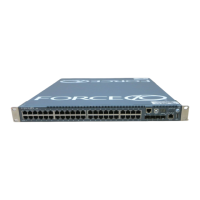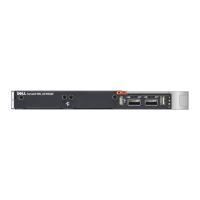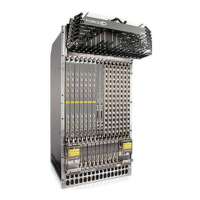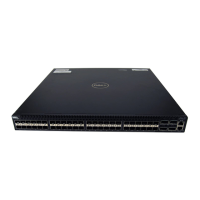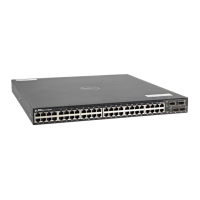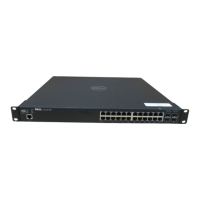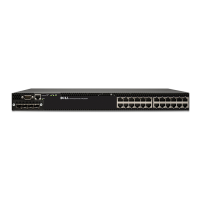Content Addressable Memory (CAM) | 265
• FTOS automatically reconfigures the CAM profile on line cards and the secondary RPM to match
the system CAM profile by saving the correct profile on the card and then rebooting it.
• The CAM configuration is applied to entire system when you use CONFIGURATION mode
commands. You must save the running-configuration to affect the change.
• All CAM configuration commands require you to reboot the system.
• When budgeting your CAM allocations for ACLs and QoS configurations, remember that ACL and
QoS rules might consume more than one CAM entry depending on complexity. For example, TCP and
UDP rules with port range options might require more than one CAM entry. Refer to Pre-calculating
Available QoS CAM Space.
• After you install a secondary RPM, copy the running-configuration to the startup-configuration so that
the new RPM has the correct CAM profile.
Select CAM Profiles
A CAM profile is selected in CONFIGURATION mode. The CAM profile is applied to entire system,
however, you must save the running-configuration to affect the change.
All components in the chassis must have the same CAM profile and microcode. The profile and microcode
loaded on the primary RPM determines the profile that is required on all other chassis components.
• If a newly installed line card has a profile different from the primary RPM, the card reboots so that it
can load the proper profile.
• If a the standby RPM has a profile different from the primary RPM, the card reboots so that it can load
the proper profile.
To change the CAM profile on the entire system:
CAM Allocation
User Configurable CAM Allocations is available on platforms: c sz
Step Task Command Syntax Command Mode
1
Select a CAM profile.
cam-profile profile microcode
microcode
CONFIGURATION
2
Save the running-configuration.
copy running-config startup-config
EXEC Privilege
3
Verify that the new CAM profile will be
written to the CAM on the next boot.
show cam-profile summary
EXEC Privilege
4
Reload the system.
reload
EXEC Privilege

